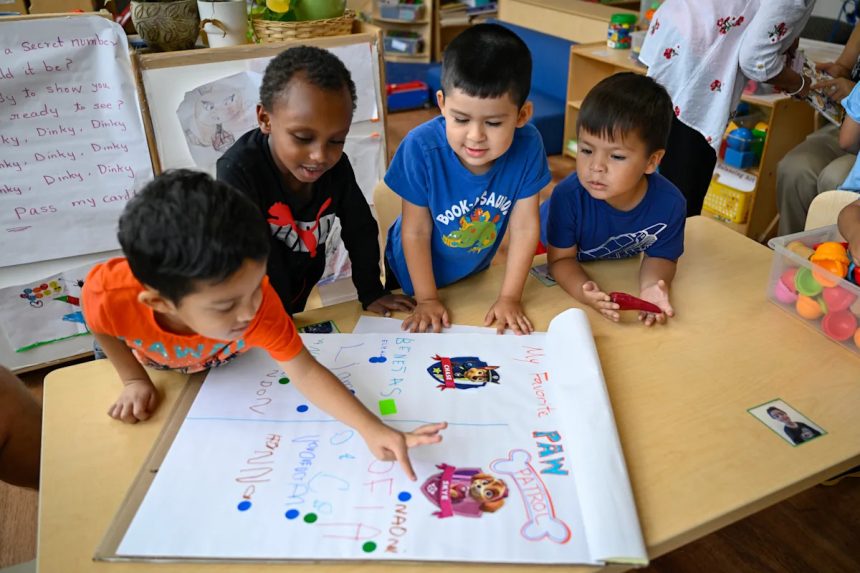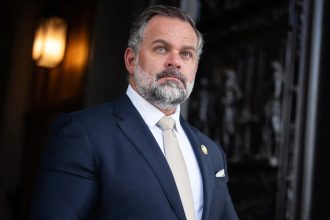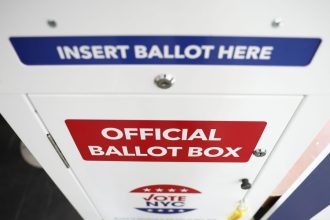Tens of thousands of children from low-income families could lose access to education, meals and health care if federal Head Start cash doesn’t resume by Nov. 1 — just as the funding drought stokes fears of lasting damage to the program.
A fresh round of grant money for Head Start, the 60-year-old federal early education program serving children under age 6, is in limbo as the federal government remains shut down. The lack of funding is expected to hit Head Start centers in red and blue states alike as Republicans and Democrats spar over who’s to blame for the shutdown. And the program is in trouble despite the fact that bipartisan support for it runs deep, including from senior Trump administration officials such as Health Secretary Robert F. Kennedy Jr, whose agency oversees the program.
The shutdown has already caused some programs to shutter, while others are making plans to do the same. A Head Start agency serving 378 children across six centers in Florida’s panhandle closed its doors Friday until the shutdown is over and its federal money starts flowing after scraping for funds to keep itself afloat for weeks.
Early education advocates fear the closures could be harmful for Head Start centers, which may lose their low-paid educators to more stable jobs. And program leaders and others fear it will cause parents to leave the workforce to take care of their kids.
“It’s heartbreaking,” said Rep. Ryan Mackenzie, a Pennsylvania Republican who visited a Head Start center in his district that’s preparing to close if it doesn’t receive a grant due on Nov. 1. “When you hear from the educators and the staff that works there, they’re the ones who are most in tune with it. They know what the potential consequences are.”
More than 58,600 children in 134 Head Start centers across 41 states and Puerto Rico will miss out on their federal grants come Nov. 1 if the shutdown continues, according to the National Head Start Association — a number confirmed by the Department of Health and Human Services. That’s on top of the six grantees serving over 6,500 children who missed awards when the shutdown began on Oct. 1.
Programs receive grants on different cycles, with Congress providing $12.2 billion for the program in fiscal 2025.
Head Start programs with limited reserve funding could face budget constraints, forcing them to cut staff, limit services, take out lines of credit to stay afloat or close down altogether.
Some Head Start advocates warn that if programs close, some of the newer educators won’t come back even after the shutdown ends — threatening a program already suffering from staff retention and low compensation. Head Start teachers made on average $39,096 in 2022, with staff turnover often being attributed to the low salaries.
A prolonged government shutdown imperils the early education, nutrition and health screenings for low-income children, whose parents often depend on the free care they receive through the bipartisan anti-poverty program and other federal benefits like WIC and SNAP, even as the White House says “Democrat programs” are expected to feel the most affliction from the shutdown.
“Parents are going to be disrupted not being able to go to work,” Mackenzie said. “And so [it’s a] very negative consequence of the shutdown that, in my opinion, is avoidable if we would get a clean continuing resolution passed and what I voted for in the House already.”
Head Start programs have already faced a barrage of funding uncertainties since the start of the second Trump administration. Grants were mistakenly frozen by the administration in January, with programs experiencing lingering technical problems accessing their cash. A government watchdog determined in July that the administration illegally impounded Head Start funding. And a draft budget proposal for HHS reportedly called for the elimination of the program.
“The Trump administration has shown repeatedly they do not care about lowering the cost of child care or Head Start — they tried to eliminate the program entirely and then illegally withheld funding from Head Start programs across the country,” Sen. Tammy Baldwin (D-Wis.), the top Democrat on the appropriations subcommittee overseeing Head Start’s funding, said in a statement. “The solution here is so obvious: we need to reopen and fund the government, ensure Head Start is open for families, and lower health care costs for families.”
But some congressional Republicans are also acknowledging the pain that popular programs like Head Start and nutrition benefits for low-income mothers and babies will experience if the government funding stalemate continues.
Sen. Shelley Moore Capito (R-W. Va.), the No. 4 Senate Republican and chair of the appropriations subcommittee overseeing Head Start’s funding, said such programs have “big concerns.”
“Things like Head Start and other things are going to start to accumulate as grants don’t go out and questions can’t be answered,” Capito said.
Kennedy has vehemently defended the program’s future in front of lawmakers, telling them in May that he “would be very sad, if somebody showed up,” to their child’s Head Start and couldn’t drop their kid off because a provider didn’t receive their appropriated grant dollars. “I fought very, very hard to make sure that there would be no cuts.”
But programs are already beginning to shutter due to the lack of government funding.
The Capital Area Community Action Agency’s Head Start program in Florida took out a line of credit to stay up and running as long as it did, and employees went without pay the last week of operation, just to give families time to make arrangements for their children.
“Many of our families in Head Start may be blended families, or families that have special needs. We have a lot of single mothers that are struggling, and I think the family part of it is what really helps them to succeed and going on to kindergarten,” said Nina Self, interim CEO of Capital Area Community Action Agency. “Head Start is pre-K on steroids.”
Other Head Start programs are facing similar challenges.
The University of Arkansas for Medical Schools’ Head Start and Early Head Start, which serves children under age 3, plans to temporarily close without its Nov. 1 grant, according to a school spokesperson. Their six centers serve 446 children and their families, and 130 employees will be furloughed.
Mid-America Regional Council’s 17 Head Start agencies in metro area Kansas City, serving more than 2,300 students, said their providers will stay open past Nov. 1, despite “significant financial risk.” But MARC Head Start Director Kasey Lawson said in a statement that programs face “the possibility of closing facilities in the very near future should the shutdown continue.” They employ more than 400 teachers.
“[T]he last thing families who rely on these programs need is more stress about whether the care they rely on for their kids will be available in a week’s time,” Sen. Patty Murray (D-Wash.) said in a statement.









